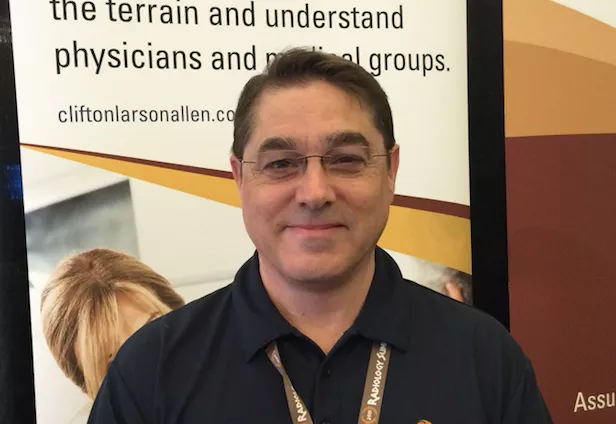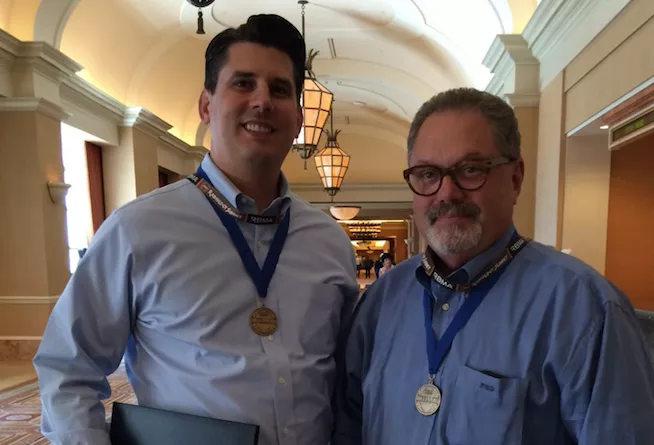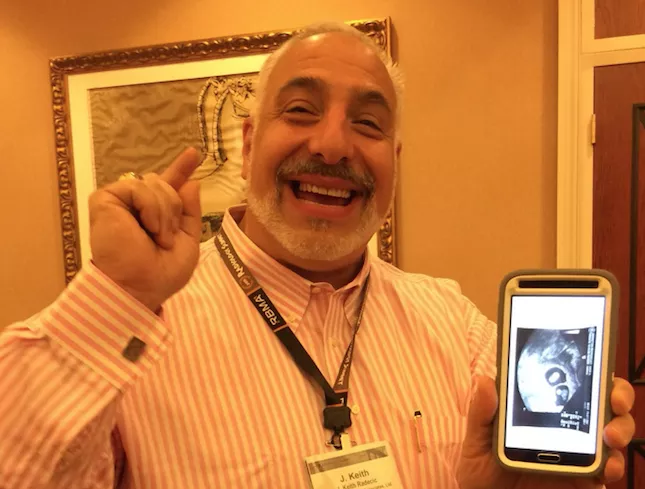RBMA15 Snapshots
A 27 Million Dollar Radiologist?
When CMS dumps physician data, there are those who perceive this as a gift, including many of the attendees at the RBMA Spring Summit. Some of them have already made some inquiries into that data. Tony Werner, MBA, a manager at CliftonLarsonAllen, identified the top-billing radiologist as an interventional radiologist who billed Medicare $27 million dollars. He then dug beneath the billable charges of the headline-grabbing number for the real story: Of the $27 million, $7 million was allowable and $5 million was received, Werner said. (Is it time to rein in fairy-tale pricing?) He cast a wider net to look at payments-to-allowables for a handful of practices to get at what should be a KPI for any billing service: The ratio of collections to allowables. “The groups that did well with collections and billings, did much better on the collections-to-allowables ratio,” Werner said.
Fine Fellows
During the Awards luncheon, three members became the latest imaging executives to earn the FRBMA credential: Brian Barbeito, MBA, MSHA, FACHE, (left), CEO, Mid-South Imaging & Therapeutics, Memphis, Tenn., Fred Downs, MS, PhD (right), manager of Diagnostic Imaging Specialists, Atlanta, Ga., and Wendy Lomers, CPA, MBA (not pictured), Acclaim Radiology Management. The path to fellowship is paved with years of membership, service on RBMA committees, letters of recommendation, activity at the state chapter level and judgment by a committee of peers.
How's Business?
The men and women who run the nation’s radiology practices generally were upbeat about the business environment so far this year. “Our state didn’t expand Medicaid, but we are seeing bad debt drop: The number of patients were the same, but the number of procedures and charges were down,” noted Adam Fogle, MBA (left), CEO, Quantum Radiology, Marietta, Ga. “That tells me that the sick people, the frequent flyers, got some kind of insurance. We also saw growth in volume.”
Ohio did expand Medicaid, and Marcia Flaherty, CEO (right), Riverside Radiology and Interventional Associates, Columbus, Ohio, saw a decrease in charity care and bad debt. She also saw same-store growth, attributed in part to wider coverage but also the general improvement in the economy. Flaherty also pointed to a client hospital on the border of West Virginia and Ohio that experienced tremendous growth, as well as growth in stroke and neuro-imaging.
ICD-10, a Done Deal
Believe it—we will transition to ICD-10 in October, said W. Scott Cubellis, CEO, Affiliated Professional Services, Wareham, Mass. Between now and then, Cubellis recommends going full bore with your hospitals, working with IT, registration and technologists to ensure that you will get the information you need to code correctly. “A lot of the hospitals aren’t ready,” he said. “It’s all a down-flow of information.” Cubellis does allow that between now and October, there may be legislation or a decision by CMS to implement gradually, not rejecting claims for three or more months.
It’s Twins!
Yes, that’s two fetuses, not one, in the sonogram on J. Keith Radecic’s iPhone, and a wider smile could not be found, from session rooms to exhibit hall floor. Radecic recently returned to the Lower 48 after a practice management stint in Alaska to take the practice administrator position at Lancaster Radiology Associates in Pa., vacated by Bob Still. Best wishes to Radecic and wife.
Gratitude of an Official Nature
Outgoing RBMA president Keith Chew, MHA, CMPE, made his gratitude to the staff of the RBMA official with a plaque of appreciation given during the awards ceremony. In an emotional acknowledgement of their support during his tenure, Chew said he couldn’t have done it without the crackerjack team. From left: Cynthia Vervena, research associate, Liz Mugo, marketing coordinator, Daphne Gawronski, director of communications and development, Angela Carroccia, meetings manager, Jill Hunt, education assistant, and Jessica Struve, CAE, membership and member’s services manager.



